Eastern Cape’s beauty dashed by constant dry taps and blame shifting
From suburbia to rural areas, Eyewitness News has heard how water issues continue to affect parts of the province, in this week’s coverage ahead of the 7th general elections.

Schoolchildren make their way to school in rural Eastern Cape. Picture: Kayleen Morgan/Eyewitness News
MAKHANDA & PORT ST JOHNS – With South Africa now poised for its 7th general elections, Eyewitness News has taken to the streets across the country, feeling the pulse of the nation as citizens prepare for the national and provincial polls.
Eyewitness News is in the Eastern Cape, where residents of Makhanda shared their stories, like going for up to three weeks without running water.
Makhanda, formerly known as Grahamstown, is best known for its arts festival and many prestigious schools, including a top university. It may be one of the province’s oldest cities.
But over the years, the city has become better known for its deteriorating infrastructure, poor governance, potholes, and water shortages.
Many of the city’s problems have been placed squarely on the local municipality and the provincial government for failing to intervene.
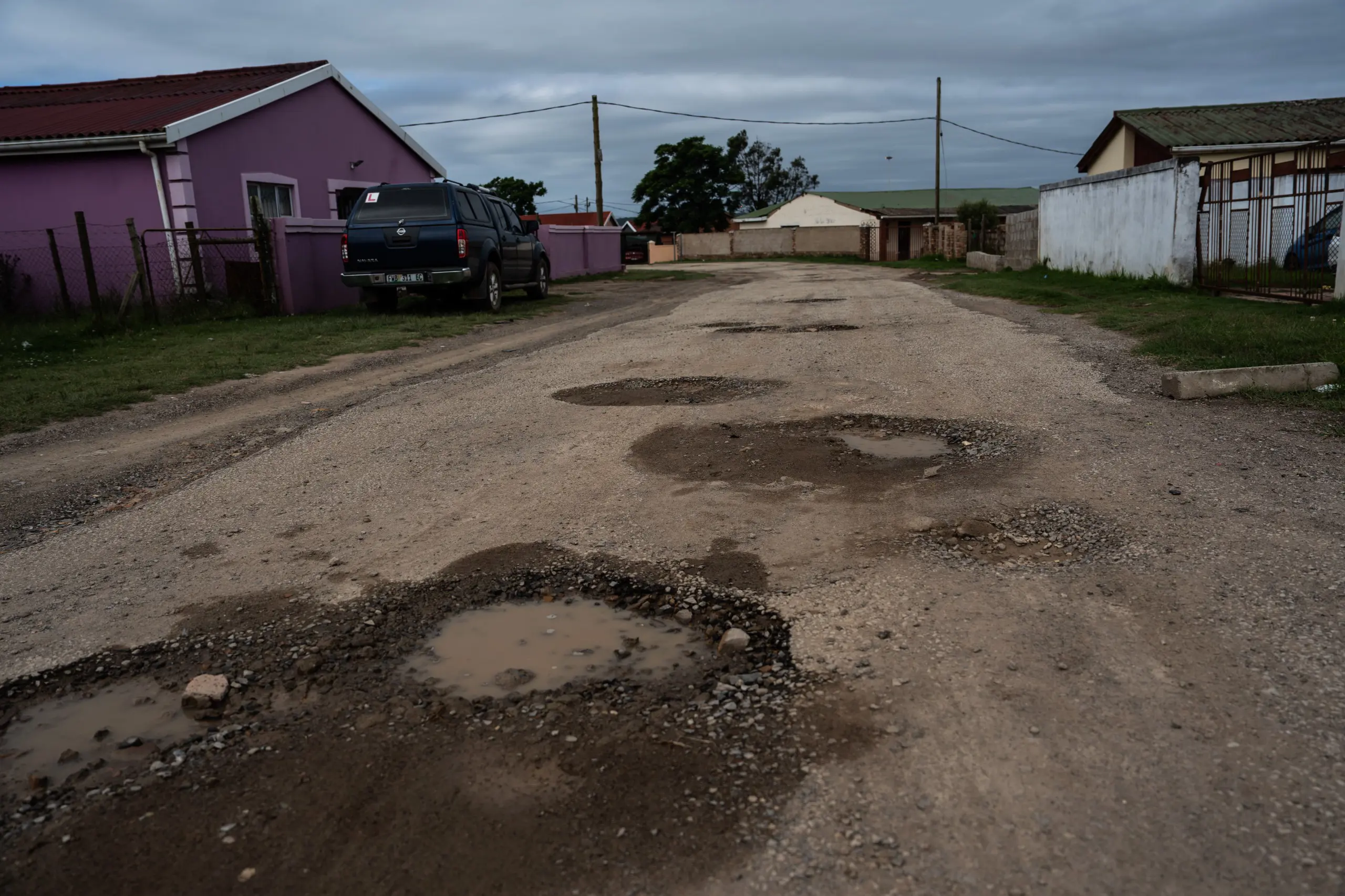
Potholes in Makana, Eastern Cape. Picture: Kayleen Morgan/Eyewitness News
The once bustling small town seems a shadow of its former self from the days when it had proper roads and consistent water supply.
Residents have been crying out for decades for proper services, one African National Congress (ANC) administration after another.
Streets and pavements are unkept and riddled with potholes, in suburban areas and in poorer communities like Joza and Phumlani.
While the provincial and local elections in May won’t change the running of the city, some residents believe the vote will be a signal to the governing party that its days are numbered.
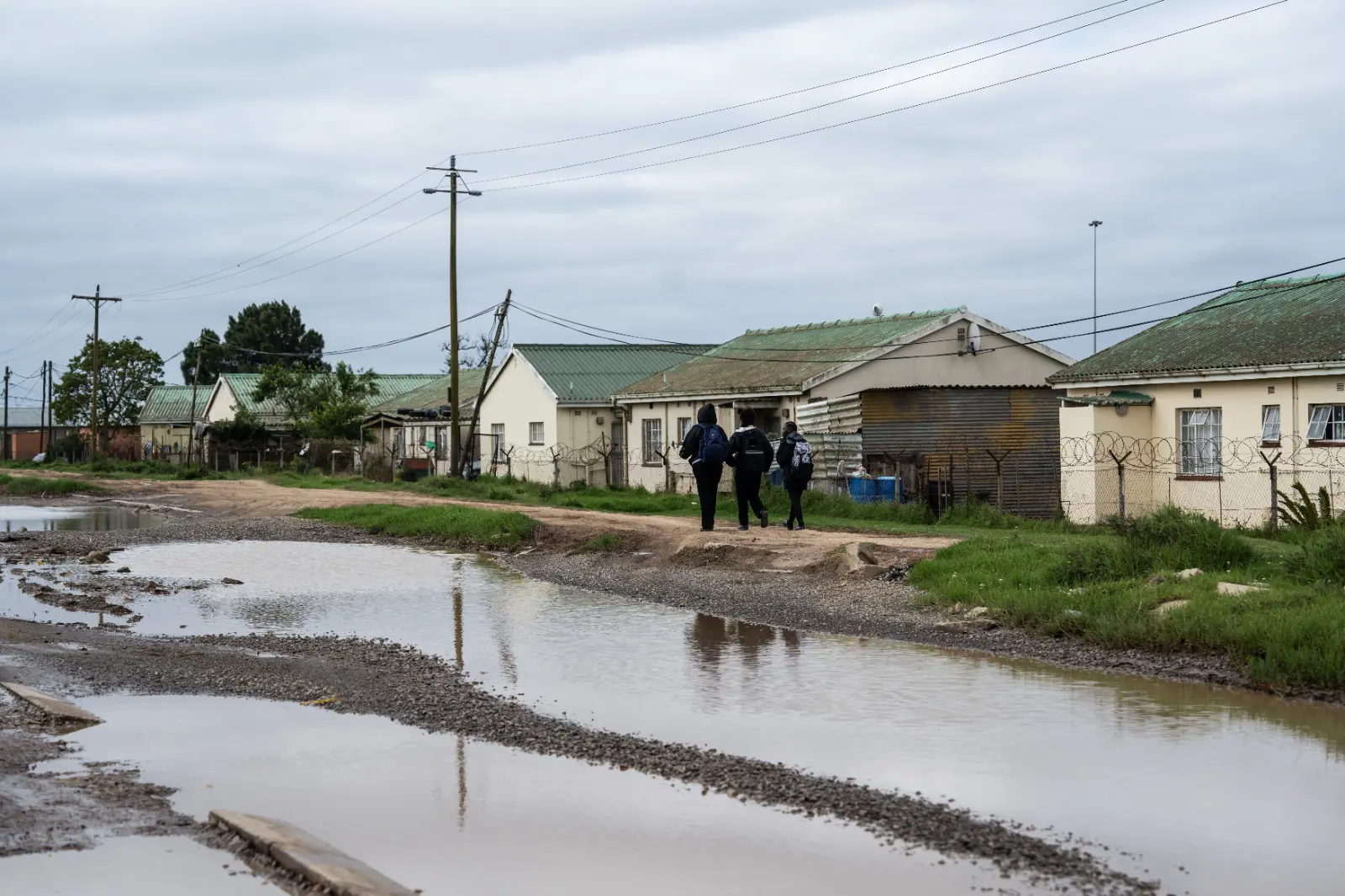
Pedestrians and vehicles are forced to share walkways in Makana municipality, Eastern Cape due to the damage caused by potholes. Picture: Kayleen Morgan/Eyewitness News
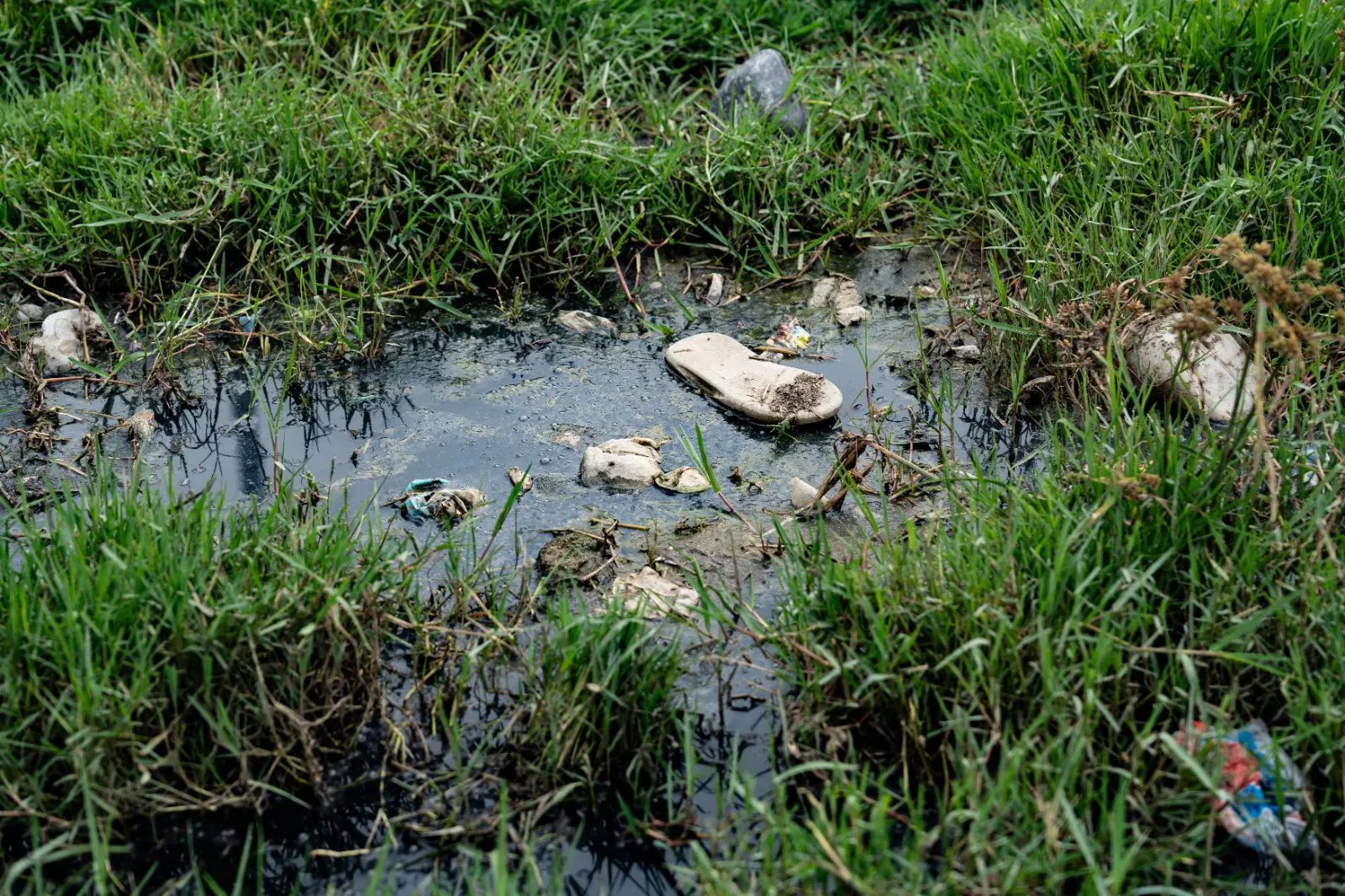
Raw sewerage spills in front of houses and next to walkways in Makana municipality in Grahamstown, Eastern Cape. Picture: Kayleen Morgan/Eyewitness News
Local resident Khululwa Lombo said a lack of services affected them, especially as elderly residents.
“It affects us terribly, especially us elderly people. If I can give you an example, something as simple as water. Here we can go for a one, two or three weeks without water.
Local councillor Luvuyo Sizani said they are unable to provide services due to revenue shortfalls, but that institutions such as Rhodes University would try to assist.
“At some point, we had an arrangement with Rhodes University, where we could not be able to have funds, and Rhodes would pay us in advance for services.”
The Democratic Alliance (DA) PR councillor said the city’s problems also affected students, who are central to the city’s survival.
“So, when you have this, it has an impact on the number of students coming to here. I understand the number of students at Rhodes has actually decreased.”
Rhodes University Vice-Chancellor Dr Sizwe Mabizela said the community had voiced their dissatisfaction about poor services, and supported their decision to do so.
“The community has been very vocal about their dissatisfaction with the state of service delivery. So, there have been protests and from time to time. We do have these. And it is important that there are such. We are a democratic country, and people have a right to express their unhappiness.”
Mabizela also encouraged people to go out and vote, instead of boycotting the ballot.
“You have chosen to leave it to others to make that decision for you, and you are bound by that decision. So, this notion that I’m not going to participate because it won’t make any difference, it does make a difference.”

Rhodes University Vice Chancellor Dr Sizwe Mabizela. Picture: Kayleen Morgan/Eyewitness News
On the water crisis, the Makana local municipality said the crippling drought nearly emptied Settlers’ Dam, which supplies about half of its water, and it is unlikely to recover unless it receives significant rainfall.
While the council can be seen trying to repair potholes and other road damage, National Treasury did order it to pay back over 80% of its unspent conditional grants, which means crumbling infrastructure will likely continue for the foreseeable future.
SAME PROBLEMS, DIFFERENT TOWN
A few hours away, a lack of water also plagues the communities of Cwebeni and Bholani, who told Eyewitness News of their continued struggle without basic services like water.
However, one small NGO has tried to make life a little easier by providing much needed food and other assistance.
Most rural communities in the OR Tambo District Municipality and the Port St Johns local municipality still use pit toilets, with no roads and little or no sanitation.
In Cwebeni and Bholani, families also have to deal with another major challenge, that of hunger with reports of malnutrition.
Eyewitness News visited the communities, and met one organisation which feeds hundreds of families, and has even taken up their fight right to the Presidency.
A LIFELINE FOR STARVING RESIDENTS
TJ Hanneman, who founded the NGO Ithemba Kuluntu, says Port St Johns and its surrounding areas have some of the most beautiful scenery in the country.
But he said the beautiful surroundings was where it ends for most communities, who struggle daily to feed their children, with most losing their homes in recent flooding disasters.
“We are looking at 300 families in a very small proximity that have lost their homes due to disaster. And money was deployed to municipalities for disaster relief - and there’s nothing.
Hanneman said they also helped in feeding the more destitute families, and in January the organisation delivered 4,800kg of bulk food to 62 families across five villages.
The food includes starches like maize, rice, flour, and sugar.
Mvikeli Phetshana said not everyone received the R350 Social Relief of Distress grants, and that most relied on NGOs such as Ithemba Kuluntu.
“Some people don’t get the R350 that is available. So, we then ask for assistance from NGOs that come and offer help.”
Another resident said her children went to school hungry until Hanneman came to their rescue.
“If TJ wasn’t around, that would be another issue. My children will arrive hungry, and I must then think what am I going to cook, because I have not sweet potato from the garden and my spinach is wilted. And green pepper can’t be cooked on its own. So luckily, I will spot TJ arriving with food, and even before he gets out of his car I will be making a fire to cook for my children.”
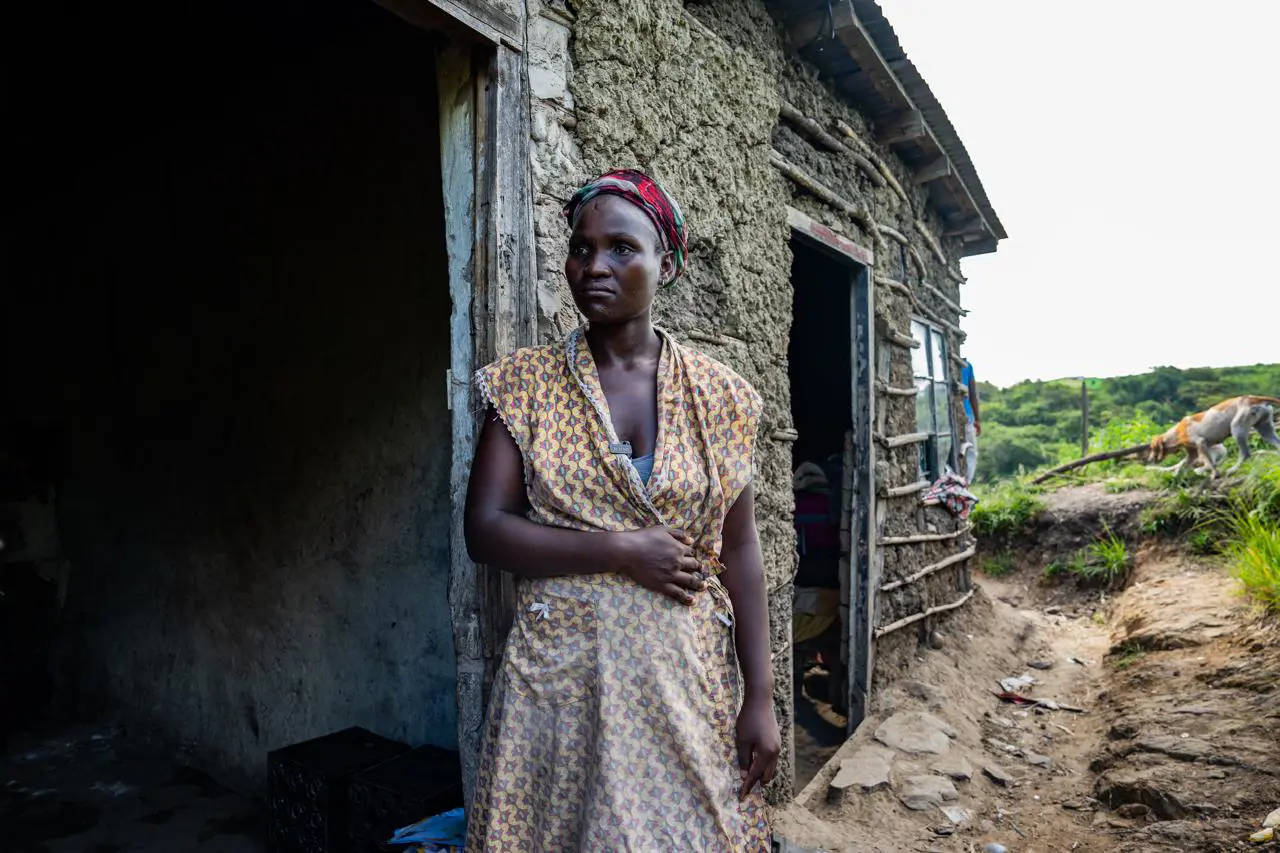
Cwebeni resident Zintle Gosani says her children only get their first meal of the day when they arrive at school as at times she can't afford to buy enough to provide food. Picture: Kayleen Morgan/Eyewitness News
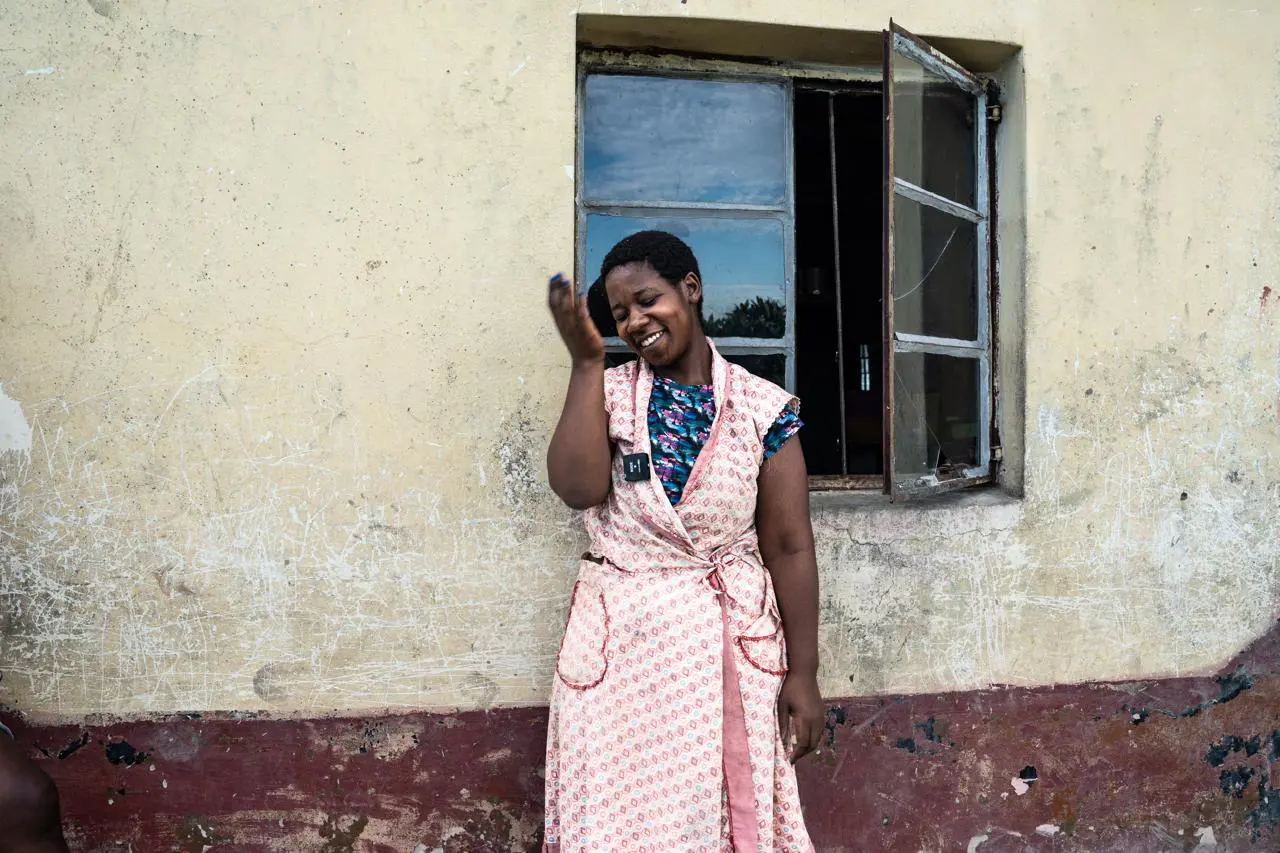
Solam Ntambeki from Cwebeni says the government has done nothing for them. Picture: Kayleen Morgan/Eyewitness News
'NO MANDATE'
While acknowledging the challenges in Cwebeni, Port St Johns spokesperson Simthandile Ford said things like water provision was not the responsibility of the local municipality, but rather the district municipality.
“We have absolutely no mandate at all when it comes to water provision,” said Ford.
OR Tambo District municipality spokesperson Zimkhitha Macingwane has not responded to messages by the time of publication.
The Cwebeni community has drafted petition with over 900 signatures for urgent government intervention for what it calls a human rights violations, but it has received no assistance from provincial or national government.